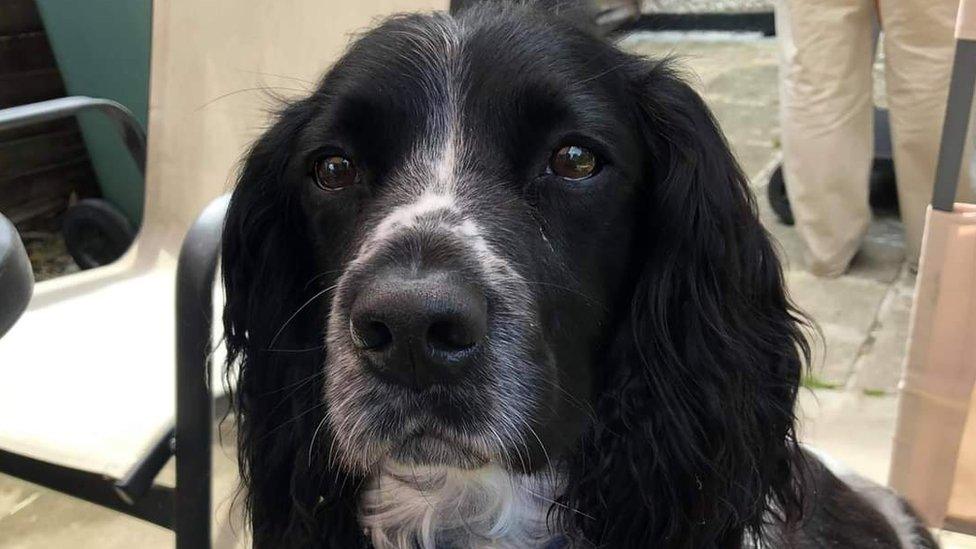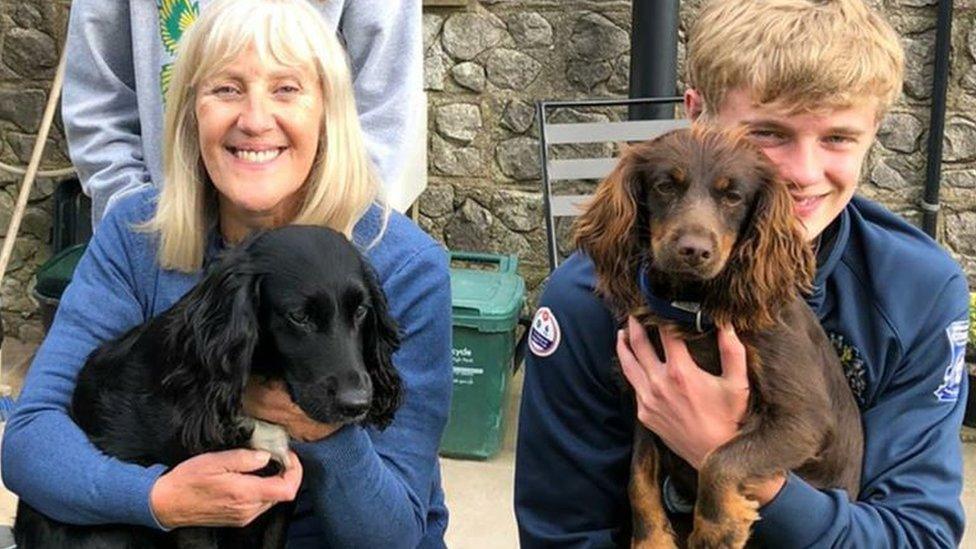Bedfordshire nature reserve dog poisoning investigated by police
- Published

Nanuk collapsed and died in his owner's arms within 30 minutes of returning from a walk
Police are investigating after a dog owner said his pet was poisoned with an illegal pesticide at a nature reserve.
Labrador Nanuk collapsed and died within minutes of returning from a walk at Totternhoe Knolls, near Dunstable, Bedfordshire, on 29 January.
Owner Frank Knight said post-mortem blood tests revealed strychnine, which has been banned in the UK since 2006. He described the death as "outrageous".
Bedfordshire Police, external urged owners to be vigilant and keep dogs on leads.
Mr Knight told BBC Three Counties he drove two-year-old Nanuk and his bull terrier for their regular walk at the reserve.
Within half an hour of returning home and being cleaned up, Nanuk's back legs had collapsed.
The dog walked on its front legs, tried to climb up a wall then collapsed and died "within 30 seconds", Mr Knight said.
'Malicious attack'
Strychnine was last used in the UK by licensed pest controllers to exterminate moles, but was outlawed because it causes unnecessary suffering.
"I just cannot imagine why a nature reserve would want to use strychnine to control moles, if they have them," said Mr Knight.
"I'm only left with the idea that this was a malicious attack. It's outrageous and heartbreaking."
The Wildlife Trust for Bedfordshire, Cambridgeshire and Northamptonshire, which looks after Totternhoe Knolls, said it did not use strychnine in any circumstances.
Two other suspected poisonings in the Dunstable area in the past week have also been reported to police.

Freddie was a healthy dog but became weak and began vomiting within hours of a walk last Thursday
Six-year-old springer spaniel Freddie died of kidney failure on Monday, four days after possibly ingesting a substance during a walk off Spinney Crescent in Dunstable, owner Chris Baverstock said.
Baron, a border collie, also died this week, 36 hours after a walk at Dunstable Downs.
Owner Jakub Kopacz said Baron's kidneys had been affected by "some kind of substance", which he may have ingested on his walk.
Campaigner Lindsay Stronge, who wants to raise awareness among owners, vets and police, said there had been a "worrying" spate of incidents in the area since last summer.
"We don't know why this poison is in these areas, who is putting it down or if dogs are the intended target, but there is clearly a problem," she said.
"The purpose of the campaign is to raise awareness locally - if your dog is seriously ill shortly after a walk, and vets are confirming it is poisoning, then it needs to be reported to police."

Find BBC News: East of England on Facebook, external, Instagram, external and Twitter, external. If you have a story suggestion email eastofenglandnews@bbc.co.uk, external
Related topics
- Published10 February 2021

- Published5 August 2020

- Published12 June 2020
